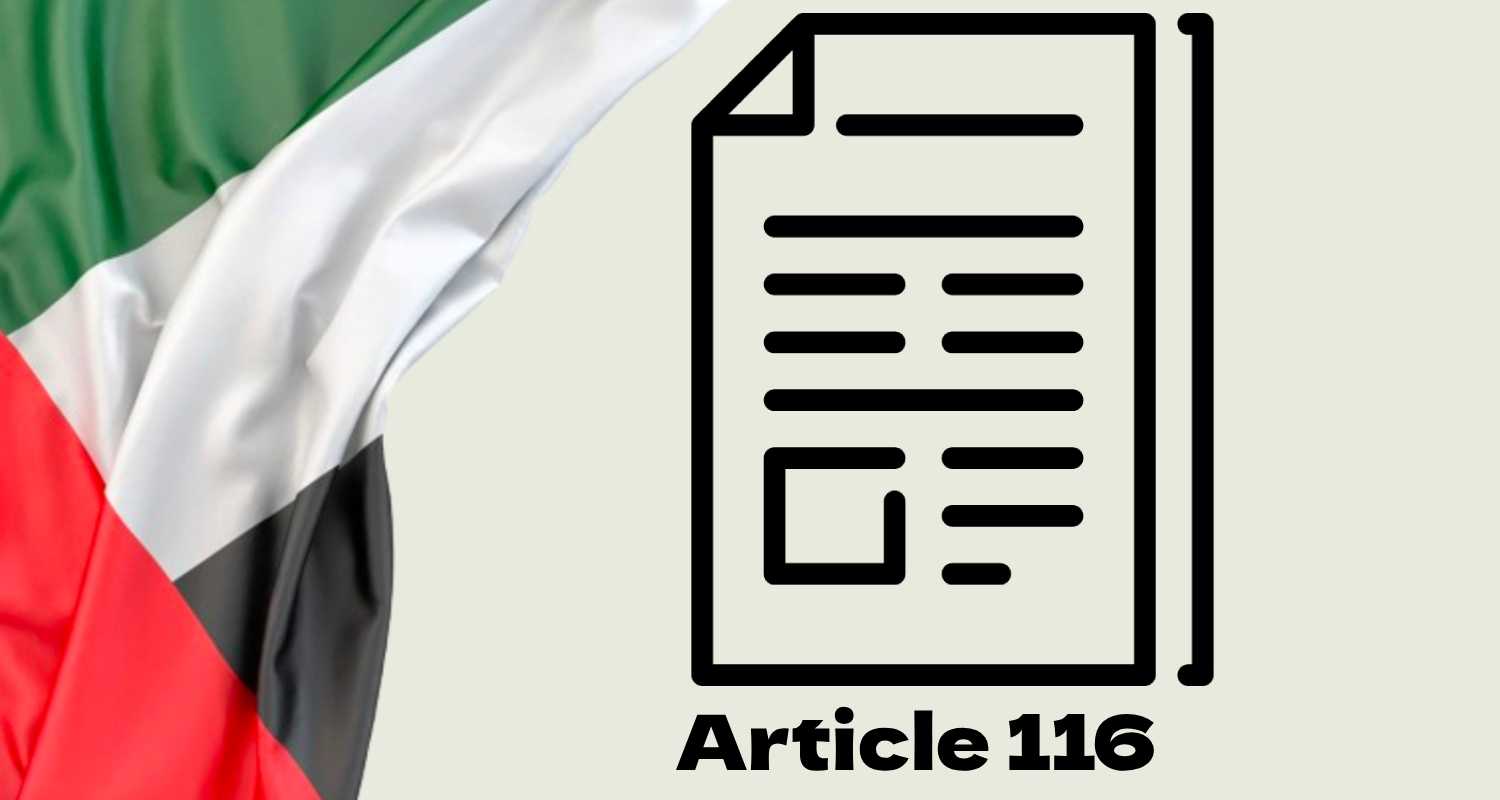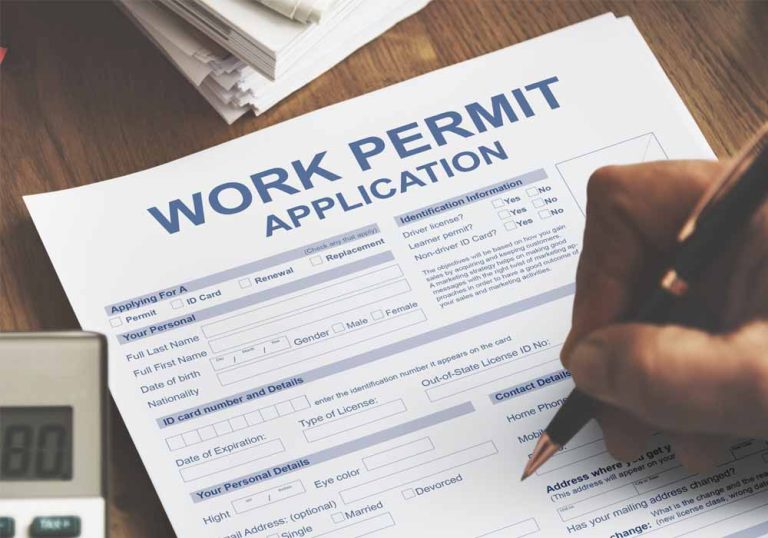Article 116 UAE Labour Law: Understanding Employee Termination Rights
Article 116 of the UAE Labour Law is a crucial piece of legislation that outlines the rights of employees in the UAE. This article covers the termination of employment contracts and provides specific guidelines for both employers and employees to follow. It is important for all individuals working in the UAE to be aware of their rights and obligations under this law.
Under Article 116, an employer may terminate an employee’s contract for a valid reason, such as poor performance, misconduct, or redundancy. However, the employer must provide notice of termination to the employee and follow the procedures outlined in the law. Similarly, an employee may terminate their contract for a valid reason, such as a breach of contract by the employer or unsafe working conditions. In such cases, the employee must also follow the procedures outlined in the law.
It is important to note that Article 116 of the UAE Labour Law is just one part of a broader framework of laws and regulations governing employment in the UAE. Employers and employees alike should familiarize themselves with all relevant laws and regulations to ensure that they are complying with their legal obligations and protecting their rights.
General Provisions of Article 116 UAE Labour Law
Scope of Application
Article 116 of the UAE Labour Law applies to all employees working in the UAE, regardless of their nationality, religion, or gender. The provisions of this article cover all types of employment contracts, including full-time, part-time, and temporary contracts.
Definitions and Terms
To better understand the provisions of Article 116, it is important to define some of the key terms used in this article:
- “Employee” refers to any person who works for an employer in exchange for a salary or wage.
- “Employer” refers to any person or entity who hires employees to work for them.
- “Salary” refers to the amount of money paid to an employee in exchange for their work.
- “Wage” refers to the amount of money paid to an employee based on the number of hours worked.
It is important to note that the definitions of these terms may vary depending on the context in which they are used in the UAE Labour Law.
Overall, Article 116 of the UAE Labour Law provides important general provisions that apply to all employees working in the UAE. By understanding the scope of application and key definitions and terms used in this article, both employees and employers can ensure that they are complying with the law and protecting their rights and interests.
Employee Rights and Obligations
As an employee in the UAE, you have certain rights and obligations that are outlined in Article 116 of the UAE Labour Law. Understanding these rights and obligations is essential to ensure a harmonious relationship between you and your employer.
Contractual Obligations
Your employment contract outlines the terms and conditions of your employment, including your job description, salary, working hours, and benefits. It is important that you read and understand your contract before signing it. You have the right to negotiate the terms of your contract before signing it, and your employer is obligated to provide you with a copy of the contract.
Leave and Working Hours
You have the right to take annual leave, sick leave, and maternity leave as per the UAE Labour Law. Your employer is obligated to provide you with a certain number of days off each year, depending on your length of service. You also have the right to work a maximum of eight hours per day and 48 hours per week, with a break of at least 30 minutes after five consecutive hours of work.
Wages and Benefits
Your employer is obligated to pay you a salary that is in accordance with your employment contract. You also have the right to receive end-of-service benefits, which are calculated based on your length of service and salary. Your employer is also obligated to provide you with health insurance, as per the UAE Labour Law.
In summary, understanding your rights and obligations as an employee in the UAE is essential to ensure a positive and productive work environment. Make sure to read and understand your employment contract, take advantage of your leave entitlements, and ensure that you are receiving the correct salary and benefits.
Termination and End of Service
Termination Procedures
As per Article 116 of the UAE Labour Law, termination of an employment contract can be initiated by either the employer or the employee. The termination procedures for both parties are clearly defined in the law.
If the employer wishes to terminate the contract, they must provide a valid reason for doing so, and follow the proper legal procedures. The employer must provide written notice to the employee, stating the reason for termination and the notice period. The notice period should be at least 30 days, or as per the terms of the employment contract.
If the employee wishes to terminate the contract, they must also provide written notice to the employer, stating the reason for termination and the notice period. The notice period should be at least 30 days, or as per the terms of the employment contract.
End of Service Gratuity
Article 132 of the UAE Labour Law states that an employee who has completed one or more years of continuous service is entitled to an end of service gratuity. The gratuity is calculated based on the length of service and the last basic salary of the employee.
The gratuity entitlement is as follows:
- 21 days of salary for each year of service for the first five years
- 30 days of salary for each additional year of service after the first five years
It is important to note that the gratuity calculation does not include any allowances or benefits, only the basic salary.
In case of termination, the employee is entitled to receive the gratuity amount immediately. However, if the employee resigns, the gratuity amount will be paid at the end of the notice period.
Overall, it is important for both employers and employees to be aware of the termination procedures and end of service gratuity entitlements as per the UAE Labour Law.
Dispute Resolution
Grievance Procedures
If you have a dispute with your employer, the first step is to try to resolve it through the company’s internal grievance procedures. These procedures should be outlined in your employment contract or employee handbook. You may need to raise your concerns with your line manager or HR department.
During the grievance procedure, you should be given the opportunity to explain your concerns and provide evidence to support your case. Your employer should also have the chance to respond to your allegations and provide evidence to support their position. The aim of the grievance procedure is to resolve the dispute as quickly and fairly as possible.
If you are not satisfied with the outcome of the internal grievance procedure, you can take your case to the relevant judicial authority.
Judicial Authorities
Under Article 116 of the UAE Labour Law, disputes between employers and employees can be referred to the Ministry of Human Resources and Emiratisation (MOHRE) or to the courts. The MOHRE has a number of labour offices across the UAE that deal with labour disputes.
If you decide to take your case to court, you will need to engage the services of a lawyer. The court will hear evidence from both sides and make a decision based on the facts of the case. It is important to note that court proceedings can be lengthy and expensive, so it is always advisable to try to resolve disputes through the internal grievance procedures first.
In conclusion, if you have a dispute with your employer, it is important to follow the company’s internal grievance procedures and try to resolve the issue as quickly and fairly as possible. If this is not successful, you can take your case to the MOHRE or to court.
Regulatory Framework
Under the UAE Labour Law, Article 116 mandates that employers must provide their employees with a safe and healthy working environment. The regulatory framework for this article is outlined in the law, which includes amendments, revisions, enforcement, and penalties.
Amendments and Revisions
The UAE Labour Law has undergone several amendments and revisions to ensure that it is up-to-date with current labour practices and regulations. The most recent amendment to the law was in 2016, which introduced changes to the gratuity payment system and the working hours of employees during Ramadan.
Enforcement and Penalties
The Ministry of Human Resources and Emiratisation (MOHRE) is responsible for enforcing the UAE Labour Law. Employers who violate Article 116 and fail to provide a safe and healthy working environment for their employees may face penalties, including fines and imprisonment.
In addition, employees have the right to file a complaint with the MOHRE if they feel that their employer is not providing a safe and healthy working environment. The MOHRE will investigate the complaint and take appropriate action against the employer if necessary.
Overall, the regulatory framework for Article 116 of the UAE Labour Law is clear and well-defined. Employers must ensure that they comply with the law to avoid penalties and maintain a safe and healthy working environment for their employees.
#Article #UAE #Labour #Law #Understanding #Employee #Termination #Rights





